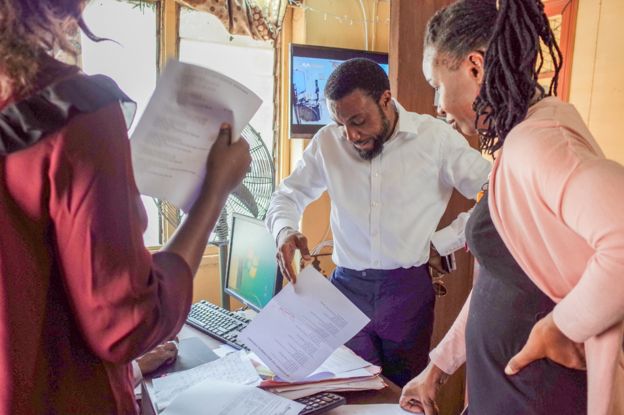In many hospitals across the world, if you don’t pay up, you won’t be allowed to go home. Patients are detained long after they should be medically discharged until they are able to foot their bills.
In most hospitals in Africa, security guards and sometimes locked doors are used to illegally detain patients who have bills pending. And in some instances, not even the death of these patients can secure their release as hospital morgues hold their bodies until families can settle their bills.
Zeal Akaraiwai, a financial consultant in his 40s, has intervened by footing the bills of stranded patients in selected hospitals in Nigeria.
According to a report by the BBC, the Nigerian philanthropist visits hospitals and interacts with authorities at the facility to inquire about those who are well but cannot go home because of bills.
He secretly settles the bills, as he does not disclose to patients that their bills are about to be paid; he does not want to be thanked and would not even want to stay in touch with any patient he helps to release.
On one of such visits to a hospital, Akaraiwai met a patient who had been shot and was now with a heavily bandaged thigh. The patient, at that moment, was thinking of how to foot his hospital bills and was hoping to receive a miracle.
Akaraiwai, after having a chat with the patient without disclosing who he was and his mission, paid the man’s $250 bill – without his knowledge.

Although the philanthropist wouldn’t want to be thanked, he told the BBC that there was one thing he would like in return: “that one day they might tell a story about him: the story of how when they were in hospital, an angel came, paid their bill and left.”
Akaraiwai has so far met people who have been compelled to stay on the ward for six – or eight – weeks after they have been discharged, the report added
He is rescuing such stranded patients under the “Angel Project”, which often receives money from friends and family. What Akaraiwai does is to keep receipts in a black book, which would also contain the details of the patients whose bills he has paid
The Angel Project does not cater to people with ongoing, serious conditions but those who are far better and ready to go home. Akaraiwai is, sometimes, forced to deviate from the rules of the project, he said, while recounting the support he gave to a woman who bled for 11 months because she had to undergo a hysterectomy.
Akaraiwai paid $400 for her operation and during his recent visit to a public hospital, he also footed the bill of a patient who needed a leg ulcer operation and a 10-year-old girl who needed further intestinal surgery.

The philanthropist, who is saddened about the situation of such stranded patients, chastised the government over the development.
“The mere fact an individual, like me, has to go into a hospital to pay the bills of people who are stranded speaks volumes about the injustice in the system,” he said.
“There’s no reason why we cannot have proper health insurance. We have clever people who can think of schemes that can work.”
“Every week I see the impact of not having compulsory health insurance, and people die. So where do you want to put the price of
Meanwhile, for the wealthy philanthropist,










